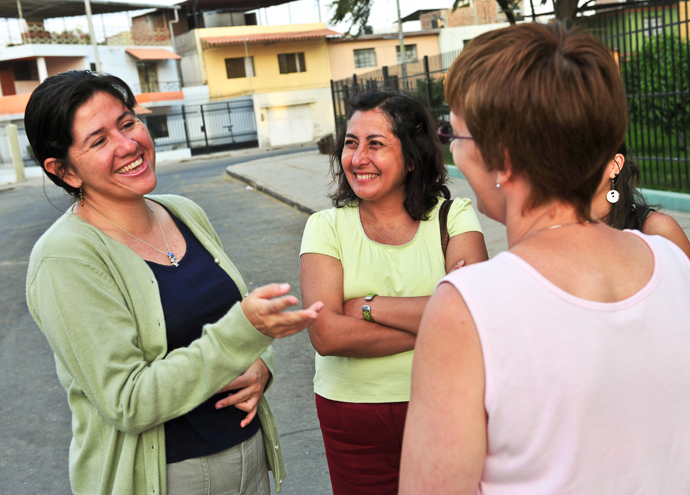
Missionary Life
The Greatest Enemy of Missionary Careers
September 24, 2013
by Interactive Supply

Here’s a little secret: Missionaries are ordinary people.
And just like ordinary people, sometimes they have conflicts about ordinary things like misplaced dishes.
These days, good missionary care teams keep an eye out for interpersonal conflict as the source of potential burnout. As it turns out, it’s not a new problem. Not by a long shot.
TEAM writer Lisa Renninger was recently researching for a project on TEAM’s history and stumbled upon a story of narrowly avoided-missionary burnout set in Venezuela over a century ago. In 1906, two pioneering missionary families, the Bachs and the Christiansens, had established a new frontier “station” and were living together under the same tiny roof. Conflict erupted between the families almost from the start. The hard feelings reportedly began when one family borrowed a set of teacups for a little too long.
The fighting escalated, and the families eventually told mission leadership they wanted to part ways. One day, in 1907, TEAM founder Fredrik Franson unexpectedly knocked on their door in the middle of one of their heated arguments. He urged them to reconcile with each other and prayed for them. Tearful apologies ensued, followed by lunch and what must have been a fair bit of encouragement and informal counseling.
The families stayed together, and over time countless lives in Venezuela were touched because of their service.
Though the situation was salvaged, at least one family nearly left the field because of team disagreements. Such stories are still common more than 100 years later, and they often don’t have happy endings. An oft-cited 1997 study by the World Evangelical Alliance found that conflict with peers was the top reason North American missionaries leave missionary service, outside of “unavoidable” causes like retirement, health and having children. The finding was similar for missionaries from newer sending countries like Brazil, Costa Rica and South Korea.
It might have even been the case 2,000 years ago, when two of the earliest missionaries, Paul and Barnabas, parted ways in Acts 15 after a falling-out.
One lesson here is that, even as enormous advances in travel, technology and global living standards over the past centuries have made missionary service much easier, interpersonal conflict has arguably remained the single greatest challenge for overseas workers. And it probably always will be.
Team dynamics don’t exist in a vacuum. Trouble with a coworker overseas can be the tipping point when stress has been mounting from culture shock or ministry setbacks. Add to that the fact that newer missionaries, in particular, are far removed from their traditional family and church support networks, and even Facebook and Skype can’t completely close that gap.
Franson knew this when he met with those two families in Venezuela. He was essentially providing an early form of missionary care. Since the 1980s, missions agencies and churches have dramatically improved their understanding of and ability to provide member care. But many agencies — particularly in newer sending countries, which often have a zeal for deploying missionaries that has outstripped their capacity to care for them — have a long way to go in taking member care seriously. Most likely, those organizations are easy to spot. They’re struggling with team dysfunction or high missionary turnover.
The definition of “member care” is broad and complex, and it involves a whole lot more than simply arbitrating disputes between missionaries. But if you are a missions organization or a sending church that doesn’t have a missionary care strategy in place, it’s urgent to get one. There are many ways to approach care. If you’re unsure where to start, here’s a thought: the numbers suggest that, at the very least, focusing on identifying and resolving any existing interpersonal conflict might be a good first step.
And if you are considering missionary service and trying to choose between organizations, take member care seriously. Make sure the organization — and your primary sending church — takes your holistic well-being even more seriously than they take your “mission.” Because truthfully, your mission depends on it.
If you would like to learn more about what it may look like to serve on the mission field with TEAM, begin the conversation today with a TEAM missions coach!

